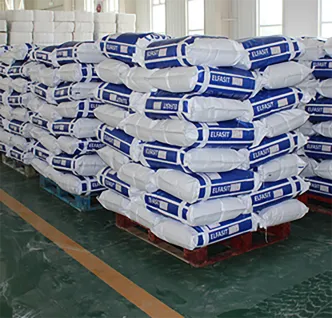
Oct . 14, 2024 11:58 Back to list
mortar bonding agent
Understanding Mortar Bonding Agents Enhancing Construction Durability
In the realm of construction, the integrity and durability of structures heavily depend on the materials used. One of the critical components that contribute to the strength and longevity of masonry is the mortar bonding agent. This article delves into what mortar bonding agents are, their benefits, types, and applications, providing a comprehensive overview for builders, architects, and DIY enthusiasts.
What is a Mortar Bonding Agent?
A mortar bonding agent is a specialized chemical compound added to mortar mixes to enhance their bonding properties. It acts as a bridge between surfaces, improving adhesion and reducing the likelihood of cracks or separation over time. By increasing interlayer adhesion, these agents play an essential role in maintaining the structural integrity of masonry and concrete projects.
Benefits of Mortar Bonding Agents
1. Enhanced Adhesion One of the primary benefits of using a mortar bonding agent is its ability to improve the adhesion of mortar to various surfaces. This is especially beneficial when applying new mortar over old, weathered surfaces, ensuring a secure bond that can withstand weight and environmental stress.
2. Reduced Cracking Mortar joints are susceptible to cracking due to temperature fluctuations and moisture variations. Bonding agents often contain additives that mitigate shrinkage and expansion, resulting in a more stable finish that is less prone to cracking.
3. Water Resistance Many modern bonding agents offer water-resistant properties. This characteristic is crucial in preventing moisture penetration, which can lead to erosion, rusting of reinforcements, and other long-term damage.
4. Improved Workability Adding a bonding agent to mortar can enhance its workability. This makes it easier to apply, spread, and shape, allowing for more precise and efficient construction practices.
5. Versatility Mortar bonding agents are compatible with various substrates, including concrete, bricks, tiles, and stone. This versatility makes them an invaluable tool in diverse construction scenarios.
Types of Mortar Bonding Agents
mortar bonding agent

Mortar bonding agents generally fall into two categories liquid and powdered forms
.- Liquid Bonding Agents These are pre-mixed solutions that are ready to use. They can be either diluted with water or used directly depending on the product instructions. Liquid bonding agents are often favored for their ease of application and consistent results.
- Powdered Bonding Agents These require mixing with other materials to create a bonding solution. While they can be slightly more labor-intensive to use, they allow for greater control over the final mix and properties of the mortar.
Applications of Mortar Bonding Agents
Mortar bonding agents are employed in various applications, including
- Masonry Repairs When repairing brick or stone structures, applying a bonding agent can significantly improve the adhesion of the new mortar to the existing masonry.
- Tile Installation In tile setting, a bonding agent can enhance the grip of the mortar on both the substrate and the tiles, resulting in a more durable installation.
- Concrete Overlays When overlaying existing concrete with a new layer, bonding agents ensure that the new surface adheres well, minimizing the risk of delamination.
- External Applications For exposed surfaces, such as facades and exterior walls, bonding agents help maintain the connection between layers even under harsh weather conditions.
Conclusion
In conclusion, mortar bonding agents are indispensable in modern construction practices. Their ability to enhance adhesion, minimize cracking, and improve overall durability makes them essential for a wide range of applications. By selecting the appropriate type of bonding agent, builders and contractors can ensure that their structures are not only aesthetically pleasing but also secure and long-lasting. Investing in quality mortar bonding agents translates to safer, more resilient buildings and infrastructure, solidifying their role in the construction industry today.
-
Versatile Hpmc Uses in Different Industries
NewsJun.19,2025
-
Redispersible Powder's Role in Enhancing Durability of Construction Products
NewsJun.19,2025
-
Hydroxyethyl Cellulose Applications Driving Green Industrial Processes
NewsJun.19,2025
-
Exploring Different Redispersible Polymer Powder
NewsJun.19,2025
-
Choosing the Right Mortar Bonding Agent
NewsJun.19,2025
-
Applications and Significance of China Hpmc in Modern Industries
NewsJun.19,2025







